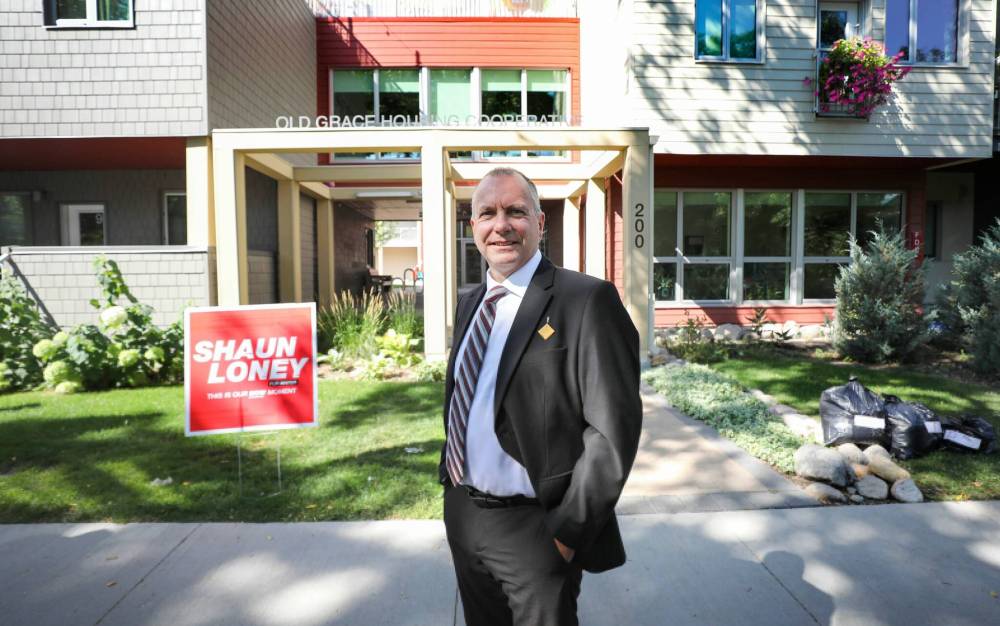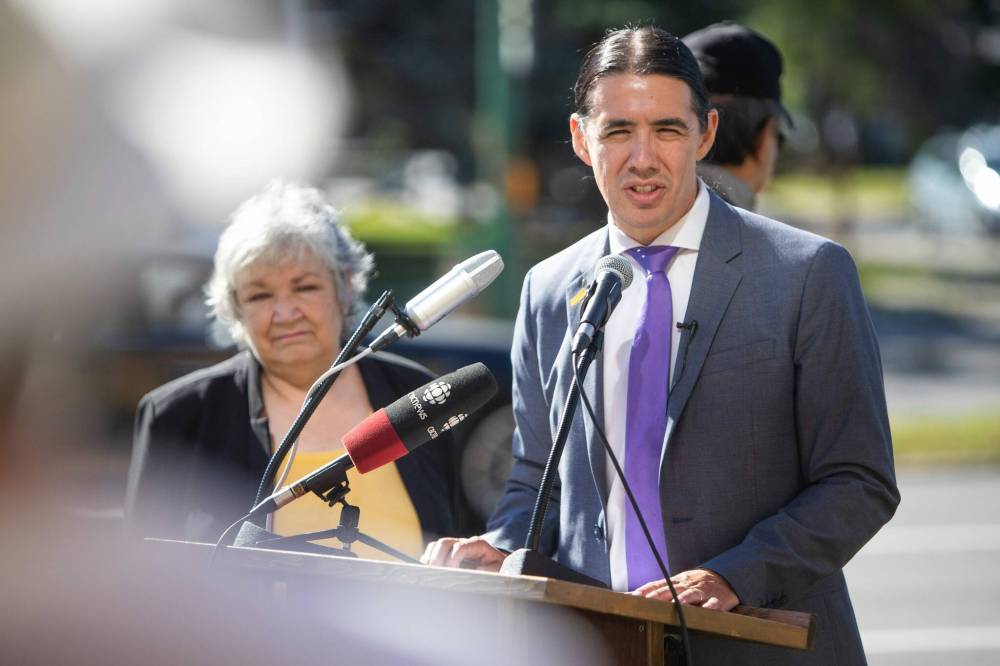Mayoral candidate Loney unveils plan to cut police calls for service
Advertisement
Read this article for free:
or
Already have an account? Log in here »
To continue reading, please subscribe:
Monthly Digital Subscription
$0 for the first 4 weeks*
- Enjoy unlimited reading on winnipegfreepress.com
- Read the E-Edition, our digital replica newspaper
- Access News Break, our award-winning app
- Play interactive puzzles
*No charge for 4 weeks then price increases to the regular rate of $19.00 plus GST every four weeks. Offer available to new and qualified returning subscribers only. Cancel any time.
Monthly Digital Subscription
$4.75/week*
- Enjoy unlimited reading on winnipegfreepress.com
- Read the E-Edition, our digital replica newspaper
- Access News Break, our award-winning app
- Play interactive puzzles
*Billed as $19 plus GST every four weeks. Cancel any time.
To continue reading, please subscribe:
Add Free Press access to your Brandon Sun subscription for only an additional
$1 for the first 4 weeks*
*Your next subscription payment will increase by $1.00 and you will be charged $16.99 plus GST for four weeks. After four weeks, your payment will increase to $23.99 plus GST every four weeks.
Read unlimited articles for free today:
or
Already have an account? Log in here »
Hey there, time traveller!
This article was published 13/09/2022 (1182 days ago), so information in it may no longer be current.
Mayoral candidate Shaun Loney is promising, if elected, to reduce the number of times Winnipeg police are dispatched to calls by 10 per cent within four years.
“It’s a completely novel approach to crime in the city,” Loney said Tuesday, adding the target will be reached thanks to several steps in his platform, including efforts to help people with employment barriers find jobs.
The plan would require co-operation and funding from the Winnipeg Police Service, since the mayor and council can’t direct its operations.

RUTH BONNEVILLE / WINNIPEG FREE PRESS FILES
Mayoral candidate Shaun Loney said he expects police would support the strategy because it would reduce demands on officers, freeing them up to respond more quickly to the remaining service calls.
Loney said he expects police would support the strategy because it would reduce demands on officers, freeing them up to respond more quickly to the remaining service calls.
First, he said police would identify Winnipeggers who are frequently accused of crimes and disturbances. That often includes people coping with homelessness, poverty and addictions who may break the law out of desperation, Loney said.
WPS would be tasked with estimating how much money it spends to respond to those who most frequently trigger service calls, then enter contracts with non-profit groups who provide resources in an effort to prevent that from happening.
“(For) people who are committing offences over and over and over again… arresting them faster is not going to get us the city that we all want,” said Loney.
He said such contracts would base the level of payment on how successful a program is at reducing the police workload, with police footing the bill.
For example, Loney said employment programs that provide jobs to those who have committed crimes in the past would reduce the demand for police — a method quite successful at Building Urban Industries for Local Development (BUILD), an organization he co-founded.
“My experience being on the front lines of this is that people literally line up in order to have an opportunity to get out of the mess that they’re in,” said Loney.
He stressed his pledge is not a step toward defunding police.
Edward Wijesuriya, owner of London I-Tech, joined Loney to support the pledge. Wijesuriya said a break-in took place at his Pembina Highway store last week, when he lost thousands of dollars worth of products. Even after insurance, he expects to cover about $3,000 of his losses.
“I’m very disappointed (about) what is happening in this city,” he said.
Wijesuriya said he moved his store from a St. Boniface location last year, after it endured two break-ins and many disturbances that led him to call police multiple times each month.
“The front of my shop (was) empty, because I (couldn’t) put anything there because they’d open the door and grab (products) and run away,” he said.
Elsewhere, mayoral candidate Robert-Falcon Ouellette shared his plan to reduce ambulance response times.
“For heart attack, stroke, trauma patients — minutes count. You need an ambulance as quickly as possible to get you to hospital as soon as possible,” Ouellette said Tuesday. “Our priority will be hiring paramedics and putting more ambulances on the road.”
In June, the Winnipeg Fire Paramedic Service noted the time it takes an ambulance to arrive at a scene had grown well beyond the official target of eight minutes, 59 seconds or less and was then “pushing 15 minutes,” which the service blamed on staff and ambulance shortages.

DANIEL CRUMP / WINNIPEG FREE PRESS FILES
Mayoral candidate Robert-Falcon Ouellette shared his plan to reduce ambulance response times.
If elected, Ouellette said he would push to finally settle a years-long contract dispute with the province (which contracts the city to provide the service) and expand the emergency paramedic in the community program.
He’d also seek a review to determine how many paramedics and ambulances are needed to meet response time targets, as well as whether or not paramedics and firefighters should be divided into separate services.
“There are two very different cultures and… I’m not sure the (paramedics) or the citizens are well-served by having them combined together.”
Meanwhile, mayoral contender Jenny Motkaluk revealed more details of her promise to provide city water and sewer service to CentrePort Canada inland port.
Motkaluk said it would help the southwest Winnipeg site become fully developed, at which point she estimates it will produce $80 million of annual revenue for the city.
“CentrePort has been in existence since 2008, and we are squandering … a huge economic development opportunity for the city by not moving forward as fast as we can.”
While she would prefer the province and feds contribute to the project, Motkaluk said it’s critical to service the land to attract investment as soon as possible, even if that forces the city to fund the effort alone.
Council has voted to earmark $20 million toward the first phase of servicing the land, subject to equal funds being provided by the provincial and federal governments, though no deal is in place to do the work.
Winnipeggers will vote in their next mayor and council Oct. 26.
joyanne.pursaga@freepress.mb.ca
Twitter: @joyanne_pursaga

Born and raised in Winnipeg, Joyanne loves to tell the stories of this city, especially when politics is involved. Joyanne became the city hall reporter for the Winnipeg Free Press in early 2020.
Our newsroom depends on a growing audience of readers to power our journalism. If you are not a paid reader, please consider becoming a subscriber.
Our newsroom depends on its audience of readers to power our journalism. Thank you for your support.









